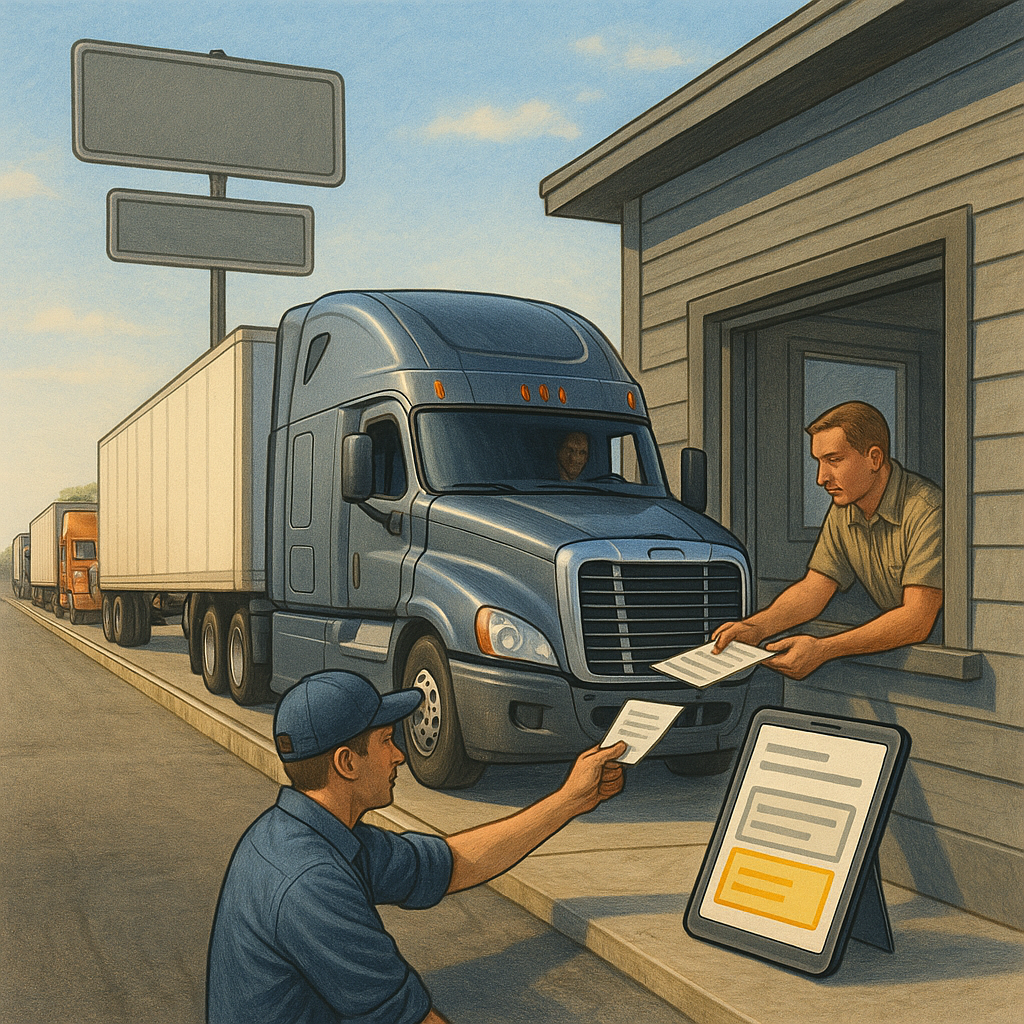If you’re a commercial carrier crossing state lines and not fully registered under the International Fuel Tax Agreement (IFTA), you’ve probably asked yourself: what is a fuel trip permit and why does it matter? Whether you’re a seasoned driver or managing a growing fleet, understanding this single document can make the difference between seamless transport and costly compliance issues.
At Reliable Permit Solutions, we field this question every day—and for good reason. Fuel trip permits serve a very specific function: they allow carriers to legally operate in states where they’re not registered under IFTA. But it’s not just a piece of paper; it’s your short-term passport for fuel tax compliance in non-covered jurisdictions.
The IFTA Connection: Why Temporary Fuel Permits Exist
To understand what a fuel trip permits, you have to first understand IFTA. The International Fuel Tax Agreement simplifies fuel tax reporting across U.S. states and Canadian provinces for qualifying commercial vehicles. But not every operator is registered with IFTA, and not every trip falls under its coverage. That’s where fuel trip permits come into play.
A fuel trip permit acts as a temporary IFTA substitute—a bridge for legal fuel usage across state lines for vehicles that lack permanent IFTA credentials.
When is a Fuel Trip Permit Required?
You’ll need to know what a fuel trip permit is used for in real-world scenarios. Simply put: any time your vehicle exceeds 26,000 pounds or has three or more axles and operates interstate without current IFTA registration, you’ll need a fuel trip permit for each non-covered jurisdiction you plan to travel through. Even a single trip into a neighboring state can trigger this requirement.
Vehicle Eligibility: Who Needs One?
Let’s break down the eligibility factor. If you’re wondering what is a fuel trip permit eligibility rule, it applies to heavy commercial motor vehicles, especially those that:
- Weigh more than 26,000 pounds (GVW or registered weight)
- Have three or more axles, regardless of weight
- Are used for business and travel across state/province lines without IFTA credentials
Application Process: How to Get a Fuel Trip Permit
So, what is a fuel trip permit application process like? Here’s a simplified step-by-step guide:
- Determine Jurisdictions – Identify which states or provinces you’ll be operating in without IFTA coverage.
- Apply in Advance – Some jurisdictions require 24-72 hours’ notice.
- Submit Required Details – Vehicle information, VIN, USDOT number, route, and travel dates.
- Pay Fees – Fees vary by state and are non-refundable.
- Keep the Permit Onboard – The permit must be available in the vehicle throughout the trip.
At Reliable Permit Solutions, we streamline this process, ensuring permits are processed quickly and accurately, so you can hit the road stress-free.
Required Documentation: Be Ready
As part of understanding what is a fuel trip permit requirements, be prepared with:
- Vehicle identification and license plate number
- Registered gross vehicle weight
- Dates of travel
- Origin and destination
- Carrier’s contact and USDOT info
Proper documentation ensures the permit is valid and enforceable, minimizing risk of fines.
Cost Breakdown: How Much Does It Cost?
If you’re asking what is a fuel trip permit cost, the answer is—it depends. States like California, Texas, or Illinois charge different rates, typically ranging from $10 to $60 per jurisdiction, per trip. Reliable Permit Solutions offers transparent pricing and bulk permit solutions to reduce costs for fleet managers and single operators alike.
Validity Period: How Long Does It Last?
So, what is a fuel trip permit duration typically? Most permits are valid from 72 to 96 hours, depending on the issuing jurisdiction. Some allow longer durations if travel distance warrants it, but in general, they’re short-term tools designed for one-time use or occasional trips.
Compliance Obligations: What You Need to Track
You’ve obtained the permit—but now what? Understanding what is a fuel trip permit responsibility includes:
- Retaining copies for audit purposes
- Logging miles per jurisdiction
- Ensuring proper permit expiration tracking
- Avoiding overlapping or duplicate permits
Reliable Permit Solutions offers record-keeping assistance and back-end support to help carriers remain audit-ready and fully compliant at all times.
How Reliable Permit Solutions Helps
Still unsure what is a fuel trip permit entails in your specific situation? That’s where we come in. Reliable Permit Solutions is your one-stop resource for commercial permitting, with real humans who understand the ever-changing patchwork of state-level requirements. From application to audit defense, we keep you compliant, efficient, and stress-free.
Whether you’re an owner-operator making an occasional haul or a fleet manager coordinating dozens of trucks across state lines, our tailored services ensure you stay ahead of regulatory roadblocks.
Final Thoughts
Understanding what is a fuel trip permit isn’t just about paperwork—it’s about protecting your operations, staying compliant, and keeping your fleet moving. Fuel trip permits bridge the gap when IFTA doesn’t apply, and working with Reliable Permit Solutions ensures you’re never caught unprepared.
Next time you hit the road without IFTA registration, remember: a fuel trip permit isn’t optional—it’s essential.
Need permits fast? Trust Reliable Permit Solutions—your authority in commercial vehicle compliance.

